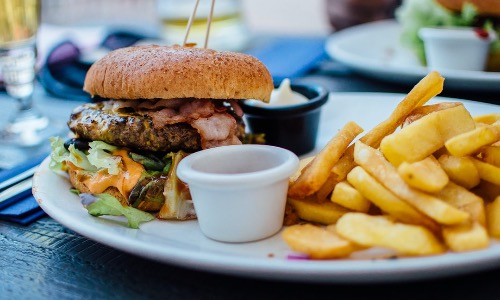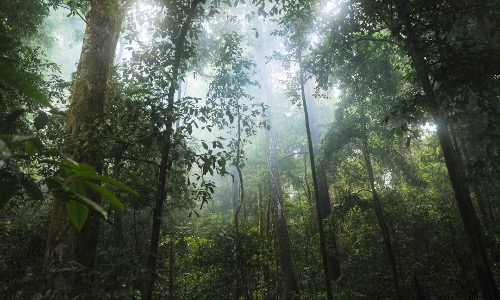The government has said it will ban junk food adverts before the 9pm watershed and launch a short consultation on whether that should be extended to a blanket ban on adverts for sweets and fast food online. Without question is should.
Continue readingFood, Production and Responsibility post Covid-19
I never want to go back to the way things were
Since the beginning of lock down there has been constant talk of returning to ‘normal’ or going back to the way things were before Covid-19.
I don’t want to go back to the way things were.
The way things were, got us here.
The way we treat our planet.
The way we treat the other animals and creatures we share our planet with.
The way we think about and treat our food in the main.
The way food and eating is incidental and dispensed with at speed in this ‘more, quicker, harder, faster’ world we live in.
Where we can have everything – and invariably do at the click of a button.
Where our priorities are all skewed and we live life on a virtual treadmill.
Food has been a theme throughout this period. Whether the focus is on empty supermarket shelves, where people hoarded ingredients for themselves far beyond need, or the constant snacking that has been a theme and we are seeing all over social media.
Or the Food Banks and Soup Kitchens that have just not been able to provide anything near like the amount of food needed to people suffering hardship at this time.
The covid-19 pandemic will see more than a quarter of a billion people suffering from acute hunger by the end of the year according to new figures from the WFP ( World Food Programme). When we think we have had it hard, there is no hint of a comparison to those living in conflict zones at this time.
Poor nutrition leaves children especially vulnerable and it is vital that commercial trade continues to flow as humanitarian work depends on it.
Worldwide hoarding is going on and countries are putting up trade barriers and WFP chief economist Arif Hussain says ‘Just like in developed countries where governments are doing all they can to assist their people, we need to do the same for tens of millions of people’. An impossible task to be faced with.
I have taken part in two Food Summits since lock down where panels of worldwide revered and respected doctors, scientists, nutrition experts and writers have discussed the roots of Covid-19 and the direct link to the way we produce food both here in the UK and worldwide.
Although the outbreak was initially tied to the Wuhan market and pangolins there is emerging evidence that suggests the virus was spreading in the community since October before being recognised as the virus we all now know as Covid-19. This brings us to examine the way animals are bred all over the world but particularly in the wildlife trade. The immune system of animals who are kept in awful conditions are weakened as a result and this means there is a combination of species and pathogens leading to mutating viruses that can spread very easily from species to species.
Although the Covid-19 outbreak has led to more regulations because of public pressure around the wild animal trade it is thought the restrictions are narrow and won’t last long enough or go far enough.
Then there is the way food is globally produced and the destruction of habitats for so much of our wildlife. For example, the beef industry is responsible for 65% of rainforest destruction and the emergence of new pathogens tends to occur where humans, and big businesses are changing the landscapes forever, farming intensively, and building larger communities.
In the process we humans are destroying ecosystems, causing no end of destruction to the biodiversity, and releasing new viruses. We are also developing a resistance to anti biotics.
You would think we had learned the most valuable lessons from the break outs of SARS in Chinese wet markets in 2002 linked to civets, Australia’s 1992 Hendra virus from the treatment of horses, , camels indicated in the Middle East Respiratory Syndrome in 2012 and chimpanzees hunted for bushmeat linked to Ebola in 2014.
But instead of these cases leading to urgent action and huge changes, we are now faced with Covid-19.
The 5 trillion agribusiness industry ‘is in a strategic alliance with influenza’ argues evolutionary biologist Rob Wallace.
So I for one do not want to go back to what we had before.
From people having time to cook in their kitchens from scratch for the first time in ever.
To children baking and using ingredients they haven’t experimented with before.
To people questioning the origins of the food they are eating.
We need change.
We need to think about the way the world organises food production.
Our wilderness and planet has to be protected. To avoid future worldwide pandemics unsanitary means of production has to end and we must dramatically reduce dairy and meat farming, eliminating all factory farming all together.
As human beings privileged to even share our planet with all the other amazing array of creatures we must take responsibility for and stop their barbaric treatment.
Food is a fundamental need to us all.
We share this responsibility to make it a priority globally to our kitchen, from our tables to our mouths.
We are what we eat has much more of a deep and poignant meaning right now.
I am always highlighting that our cells, every part of our being is only derived from every mouthful we take.
Let’s take the responsibility on exactly what this is.
Where it comes from.
How it is farmed.
What are the effects on our planet and the creatures we share it with.
And of course, is it nutritionally as well as ethically sound.
What changes will you be making?

